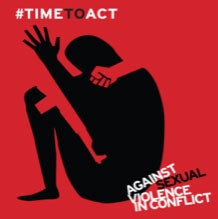Blog
Posted on July 7, 2014
By Julia Knitter
How often should a seven-year old have to worry about their health or education? While these factors are often taken for granted, they can radically change the course of a child’s life. Dreams for Orphans, a new GlobalWA member, is a Seattle-based NGO that focuses on providing safe environments and educational opportunities for orphans in Accra, Ghana. Through improved education and stable living conditions, Dreams for Orphans aims to inspire hope in orphans in developing countries.
“We live in a global society, one in which education will bring positive change in so many ways,” says Dreams for Orphans co-founder Libby Rain, illustrating the importance that the organization places on childhood education.
Continue Reading
Posted on June 30, 2014
By Hannah Atlas
 The largest international gathering ever brought together on the subject of ending sexual violence during times of conflict was held June 10-13 in London under the auspices of the United Kingdom’s Foreign & Commonwealth Office. About 1,000 participants representing more than 120 countries attended the Global Summit to End Sexual Violence in Conflict.
The largest international gathering ever brought together on the subject of ending sexual violence during times of conflict was held June 10-13 in London under the auspices of the United Kingdom’s Foreign & Commonwealth Office. About 1,000 participants representing more than 120 countries attended the Global Summit to End Sexual Violence in Conflict.
“Together, we committed to break the taboo around wartime rape and take action to put an end to its use, and to shatter the culture of impunity,” according to the summit chair summary. “At the Summit, we united in our determination to tackle sexual violence in conflict, just as previous generations joined forces to put an end to slavery and landmines. This is a matter of our common humanity.”
The summit encouraged nations to incorporate a formal international protocol for documenting and investigating sexual violence in conflict into their domestic laws. There was emphasis placed on the education and training of soldiers and peacekeepers to protect civilians during times of conflict. Improving support and protection for survivors of sexual violence and the elimination of cultural taboos were also emphasized in the summit’s call to action.
Continue Reading
Posted on June 23, 2014
By Sam Wolff
Divestment – as in, divestment from fossil fuel industries – is a relatively hot topic nowadays. It’s sometimes difficult to determine whether the prevalence of the debate is limited to liberal-leaning groups or if the conversation is a broader one. But with the recent success of the divestment movement at Stanford University, it’s evident that momentum is gaining. And, knowing the consequences of climate change, it’s apparent that this momentum needs to be universal.
Mainstream culture and media has raised awareness for the frightening future of unattended climate change – see records of rising sea levels and accounts of withering rainforests. Yet, little has changed when it comes to the practices which perpetuate environmental decline; there has been an insignificant amount of reconsideration among people when it comes to their behaviors. In light of recent studies, however, it seems that there are well-founded reasons to have a more pressing sense of urgency about this issue.

Photo Credit: CGP Grey via Flickr
Continue Reading

 The largest international gathering ever brought together on the subject of ending sexual violence during times of conflict was held June 10-13 in London under the auspices of the United Kingdom’s Foreign & Commonwealth Office. About 1,000 participants representing more than 120 countries attended the
The largest international gathering ever brought together on the subject of ending sexual violence during times of conflict was held June 10-13 in London under the auspices of the United Kingdom’s Foreign & Commonwealth Office. About 1,000 participants representing more than 120 countries attended the 